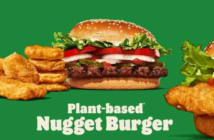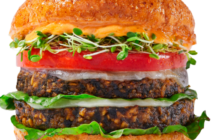A further look into the long-term sustainability of being a flexitarian, nearly two-thirds (63%) of respondents ages 24 to 39 believe their nutritional needs can be fully met with a plant-based diet, compared to those over the age of 56, who were less than half confident (30%).
Yet more than a third (36%) of people are completely unaware of what being a flexitarian means or what’s involved, even if they classify as one. When asked to explain or define what being a flexitarian means, several respondents admitted to either being aware of what’s involved but calling it something different or to being completely unaware until they took the survey.
The survey, commissioned by Sprouts Farmers Market and conducted by One Poll, also found an average 63% of people say they’d be willing to swap meat for a plant-based alternative if it met certain criteria, including tasting the same (68%), costing the same (63%), having the same nutritional value (60%), having the same texture (63%) and because it’s more ethical (63%).
“The interest in plant-based foods and a flexitarian diet is evident,” said Sprouts Chief Executive Officer Jack Sinclair. “Shoppers are more engaged with their food than ever and are seeking innovative and alternative products to mix up the meals they prepare for themselves and their families.”
More than two-thirds of Americans (68%) like to mix up their diets every once and awhile. When asked how they like to mix up their diet more than half of them like to use new ingredients (57%) or ingredient alternatives (51%).
Likewise, 68 percent of Americans believe eating healthier can help give them a better understanding of the world. Meanwhile, 69% believe eating healthier can help give people a better understanding of their own bodies.
More than six in 10 (63%) Americans will eat plant-based meals to help themselves feel better.
Fifty-nine percent of people would try plant-based foods if they were easier to find at their local grocery store.
When asked what their motivation to eat healthier was, more than half (53%) of Americans willing to give up certain foods said they want to strengthen their immune system, even before weight concerns. For 44% of them, it was to avoid getting sick. Twelve percent said they would eat healthier because it’s better for the environment.
“Plant-based product sales grew exponentially last year, indicating consumers are craving innovative items to try at home,” said Sinclair. “We believe consumers will remain focused on incorporating healthy foods into their lifestyles to support immunity and overall wellbeing in 2021. This includes introducing consumers to things they never considered before, like plant-based foods and meat alternatives.”
WHY ARE PEOPLE HESITANT TO TRY PLANT-BASED FOODS?
- I don’t think it tastes the same 47%
- I don’t think it has the same texture/mouthfeel 46%
- I think it costs too much 42%
- I think it’s over-hyped 38%
- I think it’s just a fad/trend 37%
- I think it’s too hard to find 35%
- I think it’s over-processed 26%
- I think it’s not any healthier than what I’ve been eating 18%
WHAT IS MOTIVATING PEOPLE TO EAT HEALTHIER IN 2021?
- I want to strengthen my immune system 53%
- I want to avoid getting sick 44%
- I want to optimize my body for fitness 42%
- I want to lose weight 42%
- I’ve eaten way too much junk food during the holidays 41%
- It’s part of my New Year resolution 36%
- My spouse/partner wants to lose weight together 32%
- I want to try something new 26%
- I want my body to perform tasks better 24%
- I want to feel up-to-date 19%
- I want to eat more sustainably for the planet 12%





